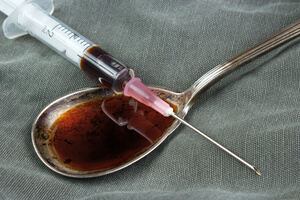Virginia takes the possession and sale of controlled substances seriously. While alcohol and tobacco are excluded from the drug schedule (because they have their own subsets of laws that govern them), many other drugs with the potential to alter someone’s physical or mental states are included. Understanding what is included in the drug schedule is crucial. The various legal categories will help you to learn more about potential penalties for possession and how the state views certain actions. Here’s what you need to know about what substances are classified as Schedule 6 Drugs in Virginia.
What Is a Drug Schedule, and Why Does It Matter?

Before you can fully learn about Schedule VI drugs, you’ll first need to understand what a drug schedule is. The drug schedule sorts controlled substances into categories based on their impact on the human body and whether they have any other practical uses (such as in medicine). This hierarchy ranges from Schedule I (the highest) to Schedule VI (the lowest).
For example, heroin is included as a Schedule I drug. It is placed in that category because it has significant addictive and mind-altering properties, and it is not used for any other medical purpose. Alternatively, substances like Valium are included further down in Schedule IV, because they can be abused, but they are also frequently prescribed by providers for non-addiction-related circumstances.
The drug schedule matters because it is what determines how serious a drug-related crime is. Drugs higher on the schedule typically carry more significant penalties, but this does not mean that there is no penalty at all for drugs at the bottom of the schedule hierarchy.
Schedule VI Drugs in Virginia
Virginia maintains a list of the drugs that it ranks in each tier of the schedule. Within Schedule VI are a number of substances that are not truly “drugs” in the sense that they are medications. However, these compounds are still regularly abused recreationally, and so they have been placed in this category. They are:

- Amyl nitrite – You may have heard of this substance called “poppers” instead of amyl nitrite. Poppers are sold as room deodorizers and have a niche application to treat cyanide poisoning. Outside of these uses, they increase blood flow for a few seconds to a few minutes.
- Butyl nitrite – Like amyl nitrite, this inhaled substance can produce a brief drop in blood pressure that leaves people feeling lightheaded.
- Nitrous oxide – Also called laughing gas, nitrous is most commonly used to help calm people down during minor outpatient procedures like dental work. However, it can be recreationally abused as an inhalant. Nitrous can be found in most types of aerosols purchasable in stores.
- Toluene – This chemical compound produces the smell associated with paint thinner, and it is commonly found in spray paint. It can be recreationally inhaled.
Because many of these products are available in stores in some form, many states (including Virginia) will limit who can buy which products according to age and/or quantity. For example, those under the age of 18 cannot buy spray paint for this reason.
Potential Penalties for Schedule VI Drug Possession
Virginia’s drug schedule indicates that possession of a Schedule VI substance comes with a potential fine of up to $250. While this may seem like a minor issue, Schedule VI possession is a Class 4 misdemeanor for the first offense. However, those who are found guilty of possession again later may see harsher penalties, regardless of whether the possession was Schedule VI, even though Class 4 is the most lenient type of misdemeanor.

Repeat offenders can face more substantial punishments, as do those who possess drugs that are higher in the schedule. For example, a Schedule IV drug possession charge carries a fine of up to $1,000 and a potential jail sentence of up to 6 months as a Class 2 misdemeanor.
Possession is not the only way to get in trouble, although it is also the most common. As mentioned previously, those under the age of 18 are not permitted to purchase spray paint. If someone over 18 gives spray paint to someone under that age limit, they could be found guilty of distributing drugs.
Trust a Legal Professional to Help You Understand Your Options
A Class 4 misdemeanor following a Schedule VI possession charge can have long-lasting consequences for your life, your employment and your finances. It is always smart to talk to a legal professional to learn more about how to approach a Schedule VI drug possession charge.
The attorneys at The Law Offices of Kermit A. Monge would be happy to help you explore your options and determine the strategy that best suits your situation. Reach out to schedule a consultation or ask any questions you might have.
